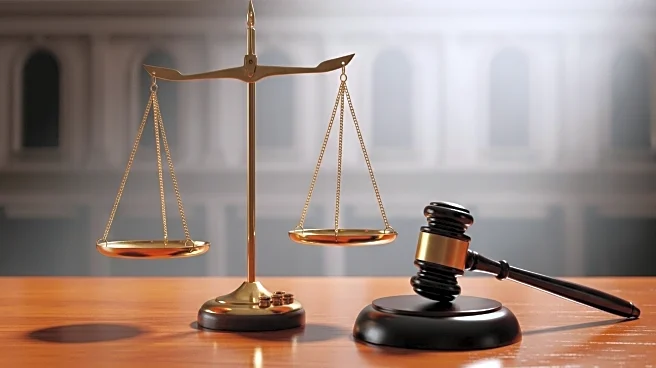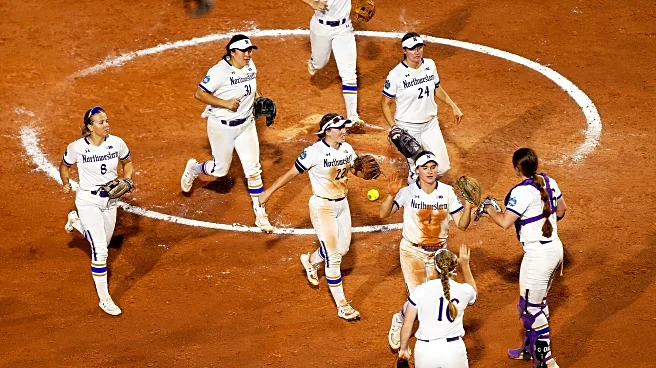What is the story about?
What's Happening?
A federal judge in Boston has ruled that the Trump administration's efforts to deport noncitizens for protesting the war in Gaza were unconstitutional. U.S. District Judge William Young found that the policy, described by several university associations as ideological deportation, violated the First Amendment. The ruling followed a trial where witnesses testified that the administration targeted students and scholars who criticized Israel or showed sympathy for Palestinians. Ramya Krishnan, a senior staff attorney at the Knight First Amendment Institute, argued that the policy created a climate of fear within university communities and was contrary to the First Amendment. The Trump administration's lawyers contended that there was no policy to revoke visas based on protected speech, asserting that the actions were merely enforcement of immigration laws.
Why It's Important?
This ruling is significant as it addresses the balance between national security and free speech rights, particularly for noncitizens in the U.S. The decision underscores the judiciary's role in checking executive actions that may infringe on constitutional rights. It highlights the ongoing debate over immigration policies and their impact on academic freedom and political expression. The ruling may influence future cases involving the intersection of immigration enforcement and free speech, potentially affecting how similar policies are crafted and implemented. It also serves as a reminder of the legal protections afforded to individuals, regardless of citizenship status, when engaging in political discourse.
What's Next?
The ruling may prompt the Trump administration to appeal the decision, seeking to uphold its immigration enforcement policies. If appealed, the case could progress to higher courts, potentially reaching the Supreme Court. The decision may also lead to increased scrutiny of immigration policies that appear to target individuals based on political beliefs. Universities and advocacy groups may use this ruling to bolster efforts in protecting the rights of noncitizens within academic settings. Additionally, the ruling could influence legislative discussions on immigration reform, particularly concerning the rights of noncitizens to engage in political activities without fear of deportation.
Beyond the Headlines
The case highlights broader ethical and legal questions about the treatment of noncitizens in the U.S. and the extent to which they can exercise free speech rights. It raises concerns about the potential chilling effect on political activism among immigrant communities, who may fear repercussions for expressing dissenting views. The ruling may encourage civil society groups to advocate for stronger protections against ideological deportation, emphasizing the importance of safeguarding democratic principles. It also reflects ongoing tensions in U.S. immigration policy, where security concerns are often weighed against individual rights and freedoms.

















